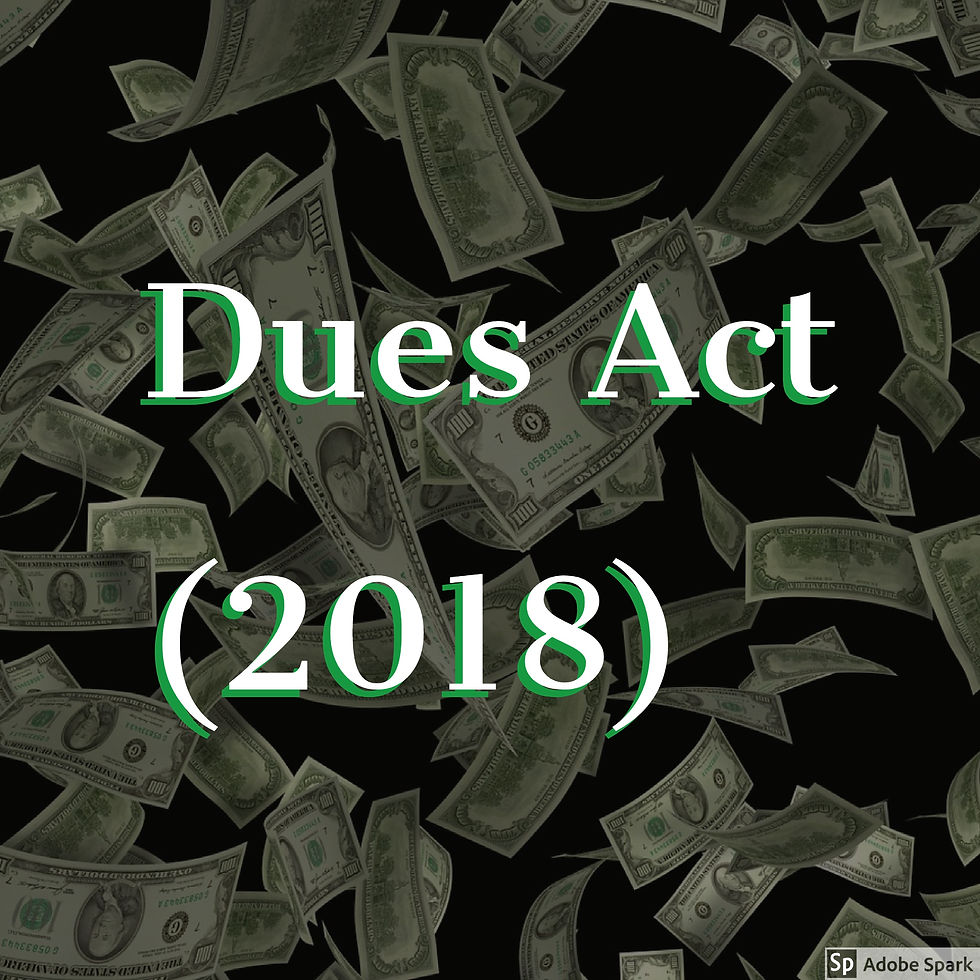The 'Dues Act of 2018' And What's In It.
- Feb 21, 2018
- 3 min read

In November of 2017 the YDNC passed a set of amendments that I call 'Colby's Amendments', although I didn't agree with most of them, the story is not about the ones I didn't like. This story is about one I did like. One amendment lowered the dues required from each chapter to the state from $10 to $5. This is good news considering that some chapters *cough* Mecklenburg *cough* has such high due rates that it's crazy! The lowering of the required dues allows for chapters to keep more of what they have and to have the flexibility to lower the amounts and potentially attract more people. Throughout December and January I watched as different chapters fiddled with their dues. I thought about what this chapter needed, and came up with the Dues Act. "Why is it called an act?" You may ask, well the answer is: it's just cooler that way. Another reason is that officially any change to the charter requires a large majority of the total membership for quorum and a large majority to pass (I'm not saying details because they're kinda messed up and next on the list to change). So another document that serves as some kind of secondary bylaw or guideline would allow for easier changing of the dues.
"Are Acts legal?"- well, they're not illegal. They aren't mentioned specifically anywhere in any charter, however with the Dues Act, one provision will amend the charter to address the legality of setting dues through this specific act. It isn't a plain straight up reform that names acts as a legitimate motion, that comes later. The said provision, however, does set a small precedent with the usage of acts. But don't worry, we've used acts before. Con-Text and the Social Media & Guidelines Act were motions/plans/initiatives that were discussed and voted on. They served as guidelines or road maps for whatever we were doing. The social media act outlines basic policy in details not expressed in the charter. And since they aren't in the charter, they're so much more easier to change if we find that the policies are not efficient or helpful.
So moving on, what is in The Dues Act? Well it contains a few simple provisions.
1. Due rates would be set in the act moving forward.
2. A default rate would be left in the charter just in case we lose the act.
3. It makes understanding which membership classification pays what.
4. It puts in writing and explains the board's ability to waive a fee or reduce the amount.
5. After a certain date (TBD) new members wouldn't have to pay until the next organization meeting.
6. The due rate for all membership classifications are set at $10 per person.
Those are the proposals on the table, they may be changed or things may be added or taken away after the final vote. Why keep the rate at $10? Well after debating whether to endorse a reduction in the rate, I decided that our chapter is too young and too poor to be able to afford not making some money off of new member dues. With that money we could actually do more things.
So keep on the lookout for the results of the Dues Act. The quorum needed to proceed is 1/4th our general membership (so like 2 people) and then a 2/3 vote is needed to pass (told you the details need updated).





Comments